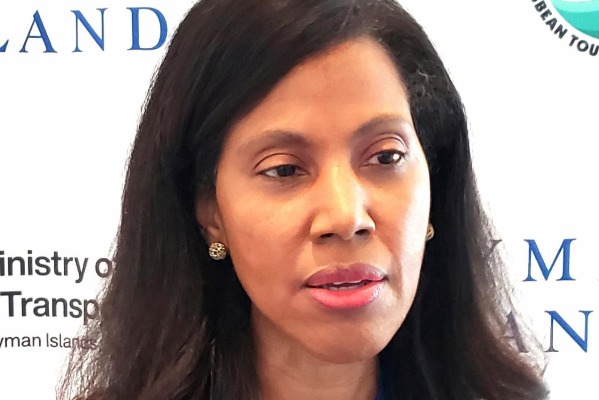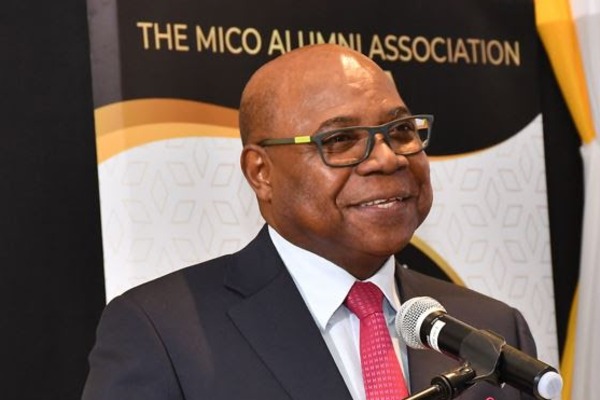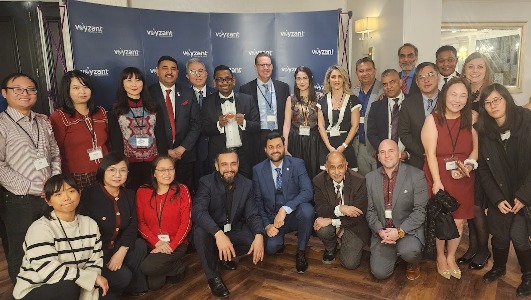Rethinking Tourism On World Tourism Day 2022

The tourism industry is celebrating World Tourism Day today (Sept. 27) with the ‘positive transformation for both people and planet’ as its central message.
Held around the theme of ‘Rethinking Tourism,’ the Global Day of Observation emphasized the sector’s unique potential to drive recovery and deliver positive change for people everywhere.
Hosted by the Republic of Indonesia, in the popular destination of Bali, the official celebrations brought together leaders from across the public and private sector, including the largest and most diverse number of Ministers of Tourism in the history of World Tourism Day. They were joined by tourism stakeholders around the world celebrating in their own countries, united around the timely theme of rethinking and transforming the sector.
UNWTO Secretary-General Zurab Pololikashvili stressed the unique opportunity presented to tourism to pause, reflect and recalibrate, observing that: “The restart of tourism everywhere brings hope. It is the ultimate cross-cutting and people-to-people sector. It touches on almost everything we do – and everything we care about. Tourism’s potential is now recognized more widely than ever. It’s up to us to deliver on this potential.”
United Nations Secretary-General António Guterres said: “Tourism has the power to foster inclusion, protect nature & promote cultural understanding. We must rethink and reinvent the sector to ensure its sustainability.”
To mark the day, UNWTO launched its first World Tourism Day Report, the first in an annual series of updates and analysis of the Organization’s work guiding the sector forward. The inaugural report is titled “Rethinking Tourism: From Crisis to Transformation”, reflecting the timely relevance of the 2022 theme as well as the unprecedented crisis that hit the sector in 2020.
The report charts UNWTO’s work uniting the sector in the face of crisis, leading tourism’s response and laying the foundations for a more inclusive and resilient future, with updates on work in every global region as well as in key areas including gender equality, sustainability and climate action, tourism governance and investments and innovation.
On the eve of World Tourism Day, UNWTO also presented the G20 Guidelines on Strengthening MSMEs and Communities as Agents of Transformation in Tourism on the occasion of the G20 Tourism Ministers Meeting in Bali. The Guidelines provide guidance for key policies that can create resilient and sustainable MSMEs and communities around the pillars of human capital, innovation, youth and women empowerment, climate action, and policy, governance and investments. They also draw up over 40 cases studies from G20 members and guest countries focused on the promotion of MSMEs and communities.
CHTA Reflects
The Caribbean Hotel and Tourism Association (CHTA) also reflected on the significant contribution tourism has made to the socioeconomic development of the Caribbean while focusing on the challenges and opportunities the industry presents for the future.
“Tourism has been the main driver in propelling Caribbean economies, creating new entrepreneurial opportunities; building upward mobility; broadening the skills and ingenuity of our peoples; celebrating and showcasing Caribbean culture, cuisine, nature and entertainment; and improving our capacity to rebound from crises and challenging situations,” stated CHTA President Nicola Madden-Greig, who added that coming out of the pandemic, tourism stakeholders must utilize the lessons learned to re-imagine the current approach to Caribbean tourism.

Looking ahead, Madden-Greig endorsed remarks from United Nations Secretary-General António Guterres on the eve of World Tourism Day who stated, “Tourism is a powerful driver for sustainable development. It contributes to the education and empowerment of women and youth and advances the socioeconomic and cultural development of communities. It plays a critical part in the social protection systems that form the foundation for resilience and prosperity.
She said: “We must invest in clean and sustainable tourism, lowering the sector’s energy consumption, adopting zero-emission pathways and protecting biodiversity. We must create decent jobs and ensure profits benefit the host country and local communities. Governments, businesses and consumers must align their tourism practices with the Sustainable Development Goals and a 1.5°C future. The very survival of this industry and many tourist destinations, such as small island developing States, depends on it …”
And Madden-Greig added: “There is no time to waste. Let us rethink and reinvent tourism and together, deliver a more sustainable, prosperous and resilient future for all.”
As CHTA celebrates its 60th anniversary, Madden-Greig pointed to the correlation between the organization’s broad program of work and successes and the contributions tourism has made to the growth and development of local economies and the Caribbean public.
She said: “Our work in the past has laid a foundation and paved a path to the future. Our challenge today is to build an industry that can adapt to and meet the ongoing and new challenges we face.”
“This includes meeting the challenges of climate change, creating a more inclusive industry, propelling upward mobility through tourism, retaining more of the tourism dollar, using technology to create new opportunities and address rising costs, reinforcing linkages and new entrepreneurial opportunities, addressing our inter-connectivity challenges, and adapting to the changing interests and demands in the marketplace,” Madden-Greig continued.
CHTA’s boss continued: “Tourism contributes more than 40% of GDP to most Caribbean economies, with a number of destinations exceeding 60%. According to the World Travel and Tourism Council (WTTC) Caribbean Economic Impact Report issued last June, the Caribbean can expand tourism’s contribution to GDP, employment and revenue retention and expansion by working together to address the myriad aforementioned challenges,” she observed.
And she concluded: “We are working on several fronts to help build a better future. Next week public and private sector tourism industry leaders will converge at the region’s largest gathering of stakeholders in Puerto Rico at the Caribbean Travel Forum and Caribbean Travel Marketplace to address both our immediate work towards recovery and our sustained efforts to build a better future. The timing of the World Tourism Day message is appropriate, as it reinforces the essential role tourism can and must play as we look to the future.”
A Message from Jamaica
Jamaica’s Minister of Tourism, Edmund Bartlett writes on World Tourism Day 2022 that: “Amid the uncertainties that have characterized the current post-COVID-19 period, an unprecedented opportunity has been presented for us to rethink strategies for building the resilience of Jamaica’s tourism industry.”
Bartlett noted that Jamaica’s Ministry of Tourism “has always advocated for a sector that is economically sustainable, socially inclusive and environmentally friendly; however, the COVID-19 crisis has accelerated our commitment to rethinking tourism to maximize its contribution to the social and economic well-being of the nation and its citizens.”
Minister Bartlett writes: “I am therefore particularly pleased to be joining the United Nations World Tourism Organization (UNWTO) and the global community in celebrating the significance of World Tourism Day, which is being observed on September 27th under the theme: Rethinking Tourism.”
He continues: “According to the UNWTO: “This means putting people and planet first and bringing everyone from governments and businesses to local communities together around a shared vision for a more sustainable, inclusive and resilient sector.”

This year’s World Tourism Day theme will also guide Jamaica’s activities for Tourism Awareness Week (TAW), which runs from Sept. 25 to Oct. 1, as we continue to raise awareness of the importance of tourism and its social, cultural, political and economic value.”
Bartlett writes: “Together with our committed tourism partners, we are charting an effective course towards sustainable recovery that is enabling the tourism industry to rebound in a big way. This is imperative because Jamaica’s tourism industry is a key source of income, employment and wealth for the country.”
He points out that for Jamaica, “the industry generates direct employment for 175,000 Jamaicans and indirect employment for over 354,000 Jamaicans, including hotel workers, farmers, craft vendors, entertainers and transportation operators. Also, it is the single largest contributor to GDP, the main source of foreign revenues and one of the country’s main sources of exports. Overall, the tourism sector has grown by 36% over the past 30 years against total economic growth of 10%.”
Minister Bartlett observed that: “The rethinking of Jamaica’s tourism is being guided by our Blue Ocean Strategy, which is playing a leading role in revitalizing Jamaica’s tourism industry. It calls for the creation of business models that depart from traditional ones based on competition and standardization. Using the key premises of this framework, we have shifted our strategic focus to one of enhanced value-creation through product differentiation and diversification.”
And he added: “We are opening up new markets and creating new demand in uncontested market spaces instead of going down the well-trodden path and competing in saturated markets.”
Said Bartlett: “What does this mean on the ground? We are harnessing our culture and heritage to tell the authentic Jamaican story; creating experiences that will get visitors out of the hotels and into our communities; training and building the capacity of our people to respond to an ever-evolving industry; renewing our focus on destination assurance; and providing technical and financial support for Small and Medium Tourism Enterprises (SMTEs), which contribute invaluably to the authenticity and totality of the visitor experience.”
He also pointed out that Jamaica’s tourism sector continues its record-breaking performance. This is underscored by the Planning Institute of Jamaica’s (PIOJ) April to June 2022 Quarterly Report, which indicates that tourism continues to drive Jamaica’s post-COVID-19 economic recovery. The economy grew by 5.7% during the quarter, compared with the same period in 2021, with the tourism and hospitality sector contributing substantially.”
“According to the PIOJ, the Real Value Added for Hotels & Restaurants grew by an estimated 55.4%, reflecting a sharp increase in visitor arrivals from all main source markets,” the Minister noted.
“In addition,” he continued, “length of stay is back to the 2019 levels of 7.9 nights while, more importantly, the average spend per visitor has increased from US$168 per night to US$182 per person per night. This is a clear indication of the resilience of our tourism sector.”
And he concludes: “This significant accomplishment is due to the hard work and perseverance of my Ministry and its public bodies, our tourism workers and partners, and the people of Jamaica. Thank you for your continued commitment to this important sector. Tourism’s success would not be possible without you.”
Tags:


